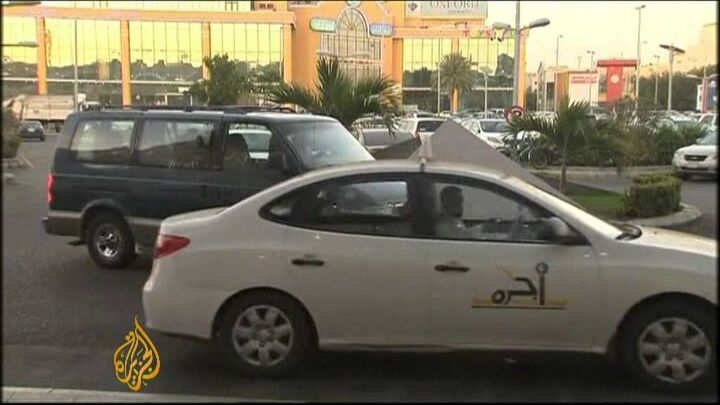#Law
Costa Rica Unveils Most Burdensome Speed Camera Program Yet
Since September 8, motorists in Costa Rica have been racking up speed camera fines worth 308,295 colones (US $600) each. Sixteen speed cameras have been flashing around the city of San Jose at a rate of a thousand per day as part of the brand new program. Those fines — among the world’s highest — are not being mailed to vehicle owners, as is the case elsewhere. Instead, motorists are expected to check their plate number on a regular basis to see if they need to pay up.
On September 26, the first set of license plates was published in the form of a 120-page list in La Gaceta, the government’s official journal. The alleged violations are sorted by day, so all of the country’s vehicle owners must scan each day of the week looking for their vehicle. Those among the 15,429 plates that have been listed so far have until October 17 to come up with the $600 in cash.
State Governors Honor Red Light Camera Company Front Group
State highway officials are using their public offices to lend credibility to a public relations front group created by a foreign red light camera company. On September 27, the Governors Highway Safety Association (GHSA) held its annual meeting in Cincinnati, Ohio where it celebrated the “special achievement” of the Traffic Safety Coalition. This group, which is run by a public relations firm retained by the Australian photo enforcement firm Redflex Traffic Systems, accepted the Peter K. O’Rourke Special Achievement Award.
GHSA is a non-profit organization that “receives a substantial part of its support from a governmental unit or from the general public,” according to its tax returns. Its primary members are state transportation officials who use GHSA to lobby on behalf of programs that increase the issuance of traffic tickets.
Albuquerque, New Mexico Voters Reject Red Light Cameras
Voters in Albuquerque, New Mexico turned out in large numbers Tuesday to vote down the use of automated ticketing machines. Nearly 40,000 ballots were cast on an advisory question that City Councilor Dan Lewis placed before voters.
“Shall the Albuquerque City Council continue authorizing the ‘safe traffic operations program,’ commonly called the ‘red light camera program’?” the ballot asked.
With 94 percent of precincts reporting, 53 percent said “no” to the cameras. Unlike past referendum efforts, the city council created the ballot measure rather than citizen activists. As a result, there was no organized campaign urging people to vote down photo enforcement. On the other hand, Redflex Traffic Systems, the Australian company that runs the camera program in Albuquerque, put on an all-out effort to advertise in support of photo ticketing.
California: Appeals Court Approves Cell Phone Search During Traffic Stop
The California Court of Appeal on September 26 approved a police officer’s rifling through the cell phone belonging to someone who had just been pulled over for a traffic violation.
Reid Nottoli was pulled over on December 6, 2009 just before 2am as he was taking a female friend home. Santa Cruz County Deputy Sheriff Steven Ryan said Nottoli’s silver Acura TL had been speeding on Highway 1. After speaking with Nottoli on the side of the road, Ryan suspected the 25-year-old was under the influence of a stimulant drug. His license was also expired, so Ryan said he would impound the vehicle. Nottoli asked if his car could stay parked on the side of the road, which was not heavily traveled and out of the way. Ryan refused so that he could conduct an “inventory” search prior to the towing.
Texas City Works With Traffic Camera Company to Nullify Anti-Camera Vote
A red light camera company and officials in the city of Baytown, Texas are conspiring to nullify the results of an election. In November, 58 percent of voters approved a ballot measure prohibiting the use of red light cameras unless a police officer is present to witness any alleged offense. American Traffic Solutions (ATS) filed suit in February to overturn the result of this vote, and city officials on September 22 asked Harris County Judge Michael D. Miller to sign off on a settlement of this suit that was prepared by ATS.
Ohio Appeals Court Strikes Down GPS Vehicle Spying
Although the US Supreme Court is expected to settle the issue of GPS tracking of motorists soon, a three-judge panel of the Ohio Court of Appeals, Fifth District ruled 2-1 earlier this month against the warrantless use of the technology. The majority’s decision was likely designed to influence the deliberations of the higher courts. On November 8, the US Supreme Court will hear oral arguments in the GPS case US v. Jones. The Ohio Supreme Court is also considering Ohio v. Johnson in which the Twelfth District appellate court upheld warrantless spying.
The present case began on January 14, 2010, when Franklin County Sheriff’s Department Corporal Richard Minerd’s investigation of a burglary brought him to a white Honda Civic in an apartment complex. Minerd slapped a battery-powered GPS tracking unit under the bumper that allowed real-time tracking of the vehicle’s location, speed and direction of travel. Minerd did not seek a search warrant before acting.
Fun With Youtube: Woman Drives Car. Gets Beaten.
Washington: City Goes All Out to Defend Dangerous Camera Program
The city of Redmond, Washington decided last week that it had no intention of putting the issue of red light cameras and speed cameras to a vote of the people. The mayor refuses to transmit the completed petition signatures for an initiative on the topic to the county auditor, despite a state law that sets a three-day deadline for the city administration to do so. On Tuesday, Redmond police released data that show accidents have increased since at
Constitutional Rights Group Challenges Warrantless GPS Tracking
A powerful group of political figures issued a report last week condemning law enforcement’s unchecked use of high-tech surveillance system. The Constitution Project is troubled in particular by the ease with which a person’s movements can be tracked 24 hours a day. The conservative-leaning group insisted on the need to bring the law back in line with fundamental constitutional principles.
“Private sector technologies that enable constant monitoring of individuals are moving inexorably forward, and as they are developed, law enforcement agencies inevitably seek to use these new surveillance tools,” the report stated. “These include not only GPS devices and cell phones, but also laptop and notebook computers, location based services like OnStar, and technologies yet to be developed. Use of these surveillance devices presents serious challenges in terms of compliance with Fourth Amendment protections. While these technologies enhance the ability of law enforcement agents to accomplish their important work, it is also critical that we carry forward Fourth Amendment safeguards into the Digital Age.”
Florida Appeals Court Strikes Down Loud Car Music Law
A Florida law prohibiting the blasting of loud music from automobiles violates the first amendment, the Florida Court of Appeals, Fifth District, ruled on September 16. Shannon Montgomery had been driving in Marion County with his tunes “plainly audible” from a distance of twenty-five feet, contrary to the statute. He was pulled over and police eventually discovered he was carrying cocaine and marijuana.
Montgomery moved to suppress the evidence against him, arguing state law used to justify the traffic stop was overly broad and that “plainly audible” is an arbitrary standard. The appellate judges disagreed.
Missouri: Violations Still Down With Longer Yellows
Photo enforcement advocates downplay the benefit of increased yellow time in addressing the problem of red light running. New evidence from Arnold, Missouri shows that red light cameras continue to flash at a much lower rate since the state mandated longer signal timing at a number of photo-enforced intersections.
Arnold was the first jurisdiction in the Show Me State to allow a private company, American Traffic Solutions (ATS), to mail traffic tickets to residents. Since 2005, ATS has handed out more than 30,000 tickets worth over $3.1 million. In 2010, tickets were being pumped out at an average rate of 800 per month. With longer yellows, that figure averaged just 113 through July and August using the most up-to-date data available.
Texas: Red Light Camera Tickets a Man Running a Green Light
Cities that use automated ticketing machines at intersections routinely assert two things: The camera does not lie, and at least three humans review each citation before it is dropped in the mail. That did not happen in Port Lavaca, Texas. On September 12, Port Lavaca Police Sergeant Kelly Flood signed a ticket accusing Dale Price of running a red light and demanding he pay $75 by October 12, but the light was green.
“Based upon my review and inspection of the recorded images, I state that a violation of ordinance #S-1-08 did occur,” the ticket stated just above Flood’s signature. “I declare under penalty of perjury under the laws of the state of Texas the foregoing is true and correct.”
Massachusetts: Supreme Court Approves Charging Innocent Ticket Recipients
Motorists issued a traffic ticket in Massachusetts will have to pay money to the state whether or not they committed the alleged crime. According to a state supreme court ruling handed down yesterday, fees are to be imposed even on those found completely innocent. The high court saw no injustice in collecting $70 from Ralph C. Sullivan after he successfully fought a $100 ticket for failure to stay within a marked lane.
Louisiana: Legality of Municipal Red Light Camera Contract Questioned
Red light cameras and speed cameras may not be legally operating in Lafayette, Louisiana, according to current and former city officials. Councilman William G. Theriot was first to suggest that the city-parish President Joey Durel did not have the authority to unilaterally extend the contract with Australian automated ticketing vendor Redflex Traffic Systems when the agreement expired in June.
“I think a lot of people want to have a say so in what’s involved in it,” Theriot told KATC-TV. “Secondly if it is extended, we don’t know if the terms were negotiated or what was involved.”
How To Tell If A Red Light Camera Is A Safety Tool Or A Dangerous Form Of Taxation
[Editor’s note: The following was sent to us by Donald Sawicki of Copradar.com, a site where Mr Sawicki offers insight and literature on radar and red light camera safety issues to victims, defendants and legal professionals.]
The first step towards determining if a red light camera exists to make money is to answer the question: Does the traffic light force drivers that just happen to be in the wrong spot (worst case) when the light changes yellow to brake safely (worst spot at worst time)? If the answer is “safe braking for worst case” the camera probably exists for legitimate reasons of safety. If the yellow light forces unsafe or even dangerous worst case braking, the camera is strictly a source of money (a dangerous tax) that goes to cities or states and equipment suppliers (which typically split the booty). To catch (trap, trick, hook or crook) more redlight runners some municipalities shorten the yellow time forcing drivers (even NEAR worse case distance) to run the light. It gets worse: many jurisdictions use outdated driver reaction times (some established over half a century ago) when determining yellow duration, resulting in short yellow light times and unsafe worse case braking.





























Recent Comments